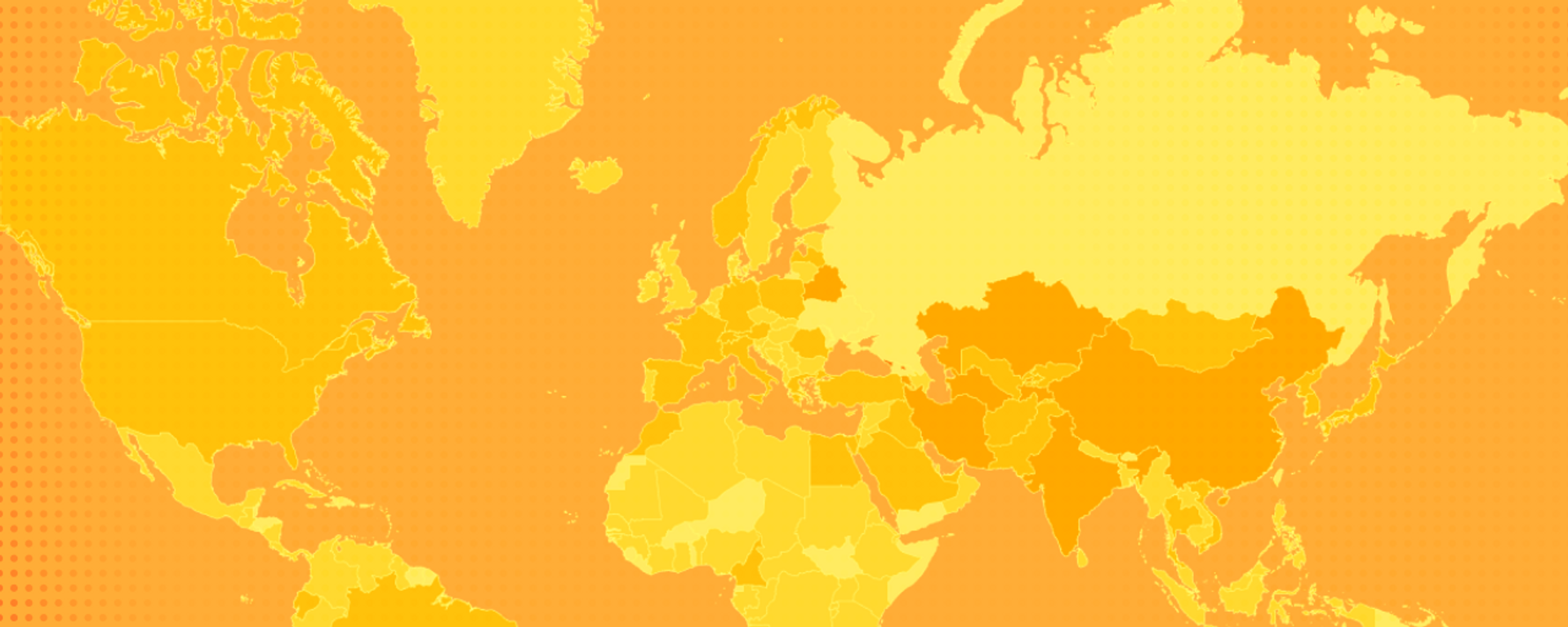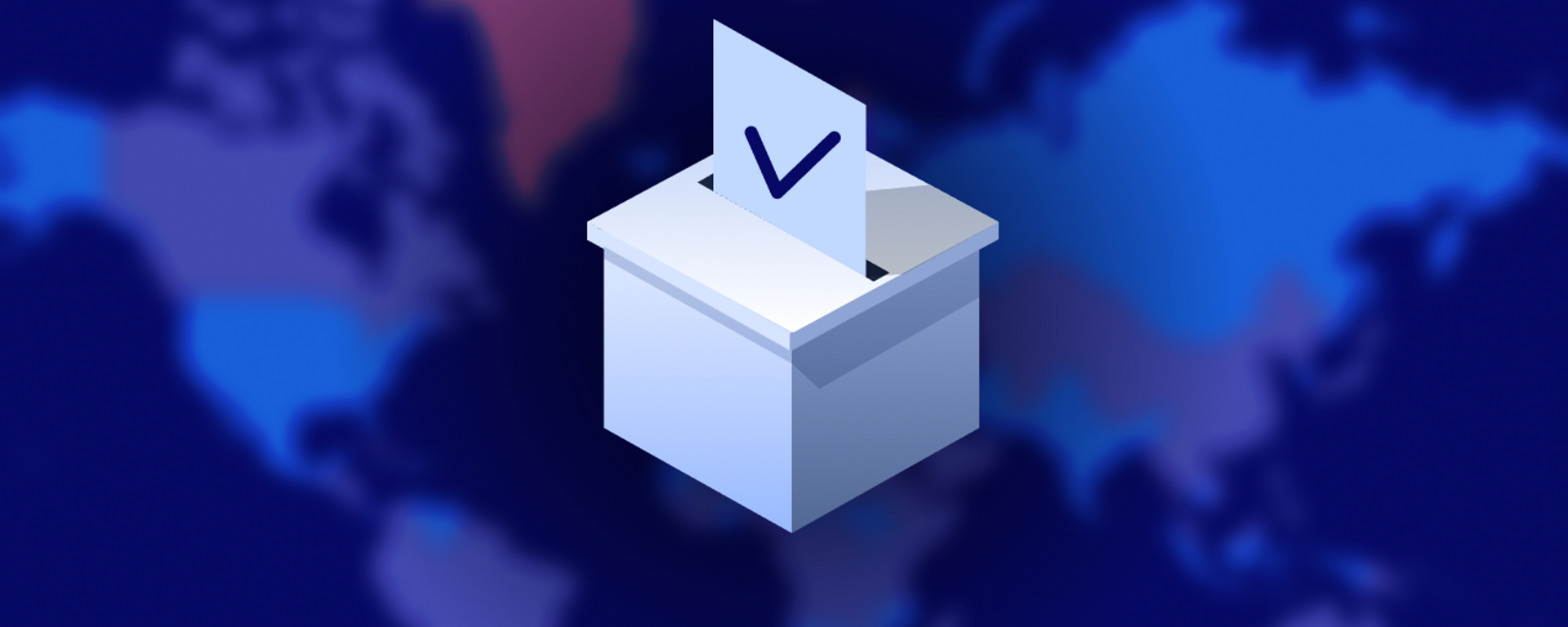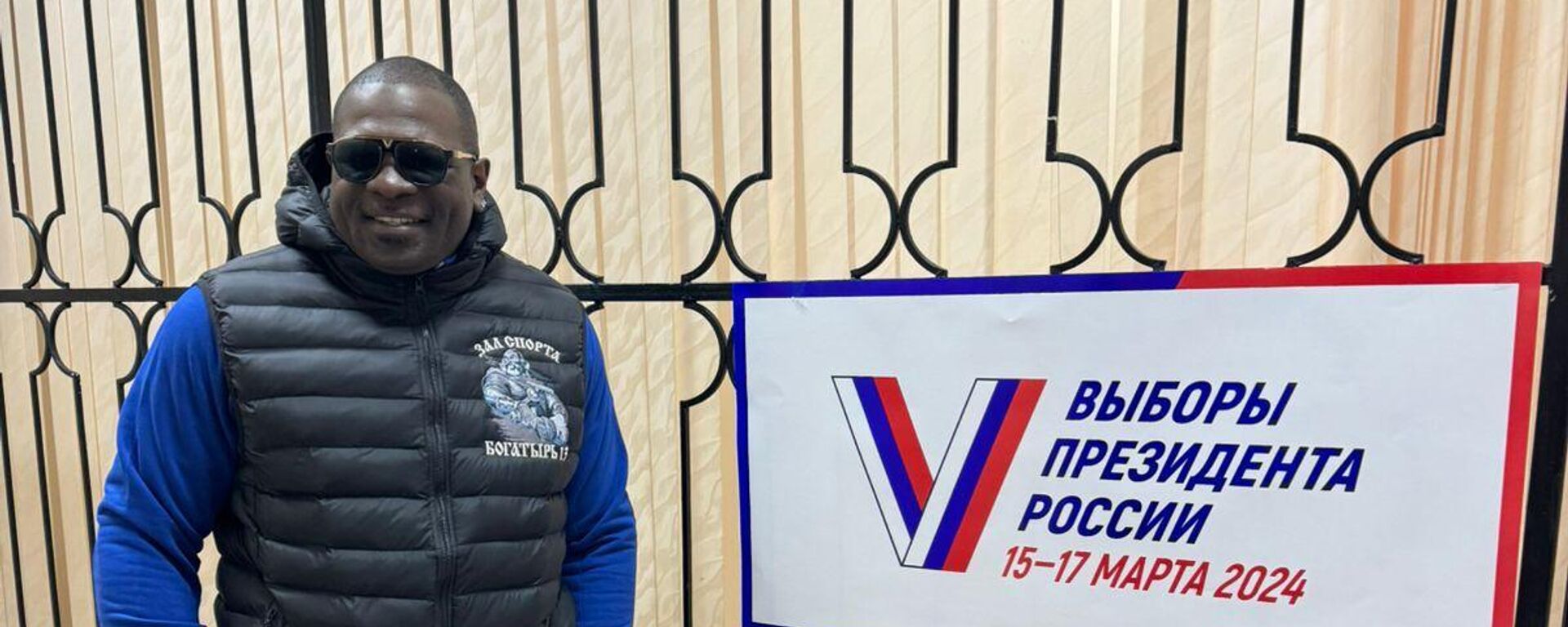Comprehensive Guide to Russia's Presidential Elections Which Started on Friday
14:35 15.03.2024 (Updated: 09:36 16.03.2024)
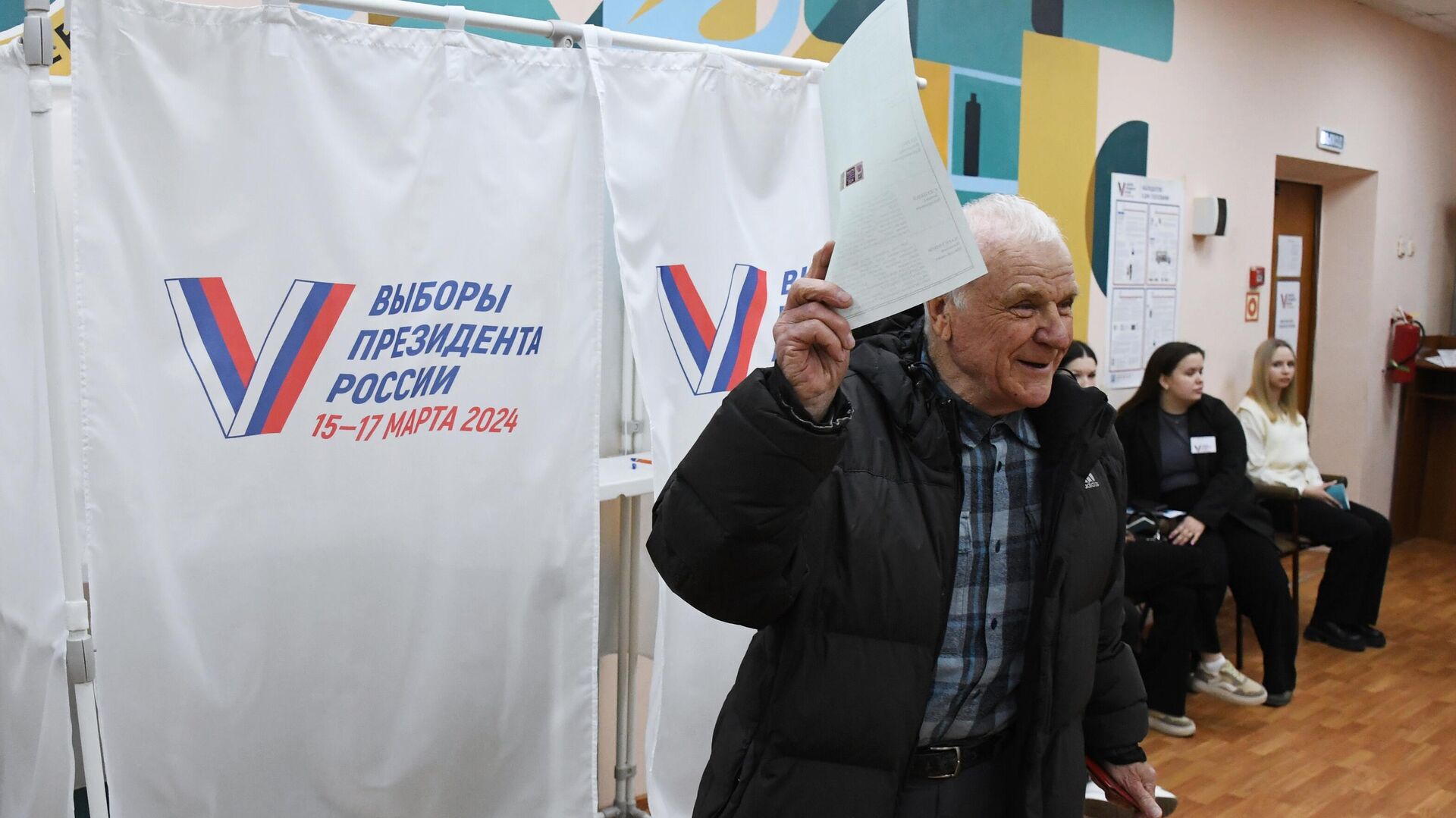
© Sputnik . Vitaliy Ankov
/ Subscribe
Longread
Voting to elect Russia's next president began Friday and will continue for three days through March 17, drawing millions of citizens to polling stations.
Early voting for Russia's 2024 Presidential Election, the eighth since the nation's modern era, began on February 25. This option allows Russian citizens residing in remote or challenging-to-access areas to participate in the electoral process until March 14. Moreover, Russian citizens living overseas started casting their votes on March 1.
The main event in the elections is being held throughout Russia, across its vast geographic expanse, as well as at sea, encompassing the nation in its entirety from the Far North, to the special military operation zone and Russia's new regions, and even aboard ships way out in the Sea of Okhotsk.
March 15 and 16 will see the deployment of mobile polling stations strategically positioned near the special operation zone, encompassing Donetsk, Lugansk, Zaporozhye, Kherson, Belgorod, Bryansk, and Kursk regions, as well as Crimea. This effort aims to facilitate convenient access to the voting process for residents in these locations.
Voter turnout at the previous presidential elections in 2018 was at 67.5%. This year, turnout is expected to be at 71%, the Russian Public Opinion Research Center (VCIOM) predicts.
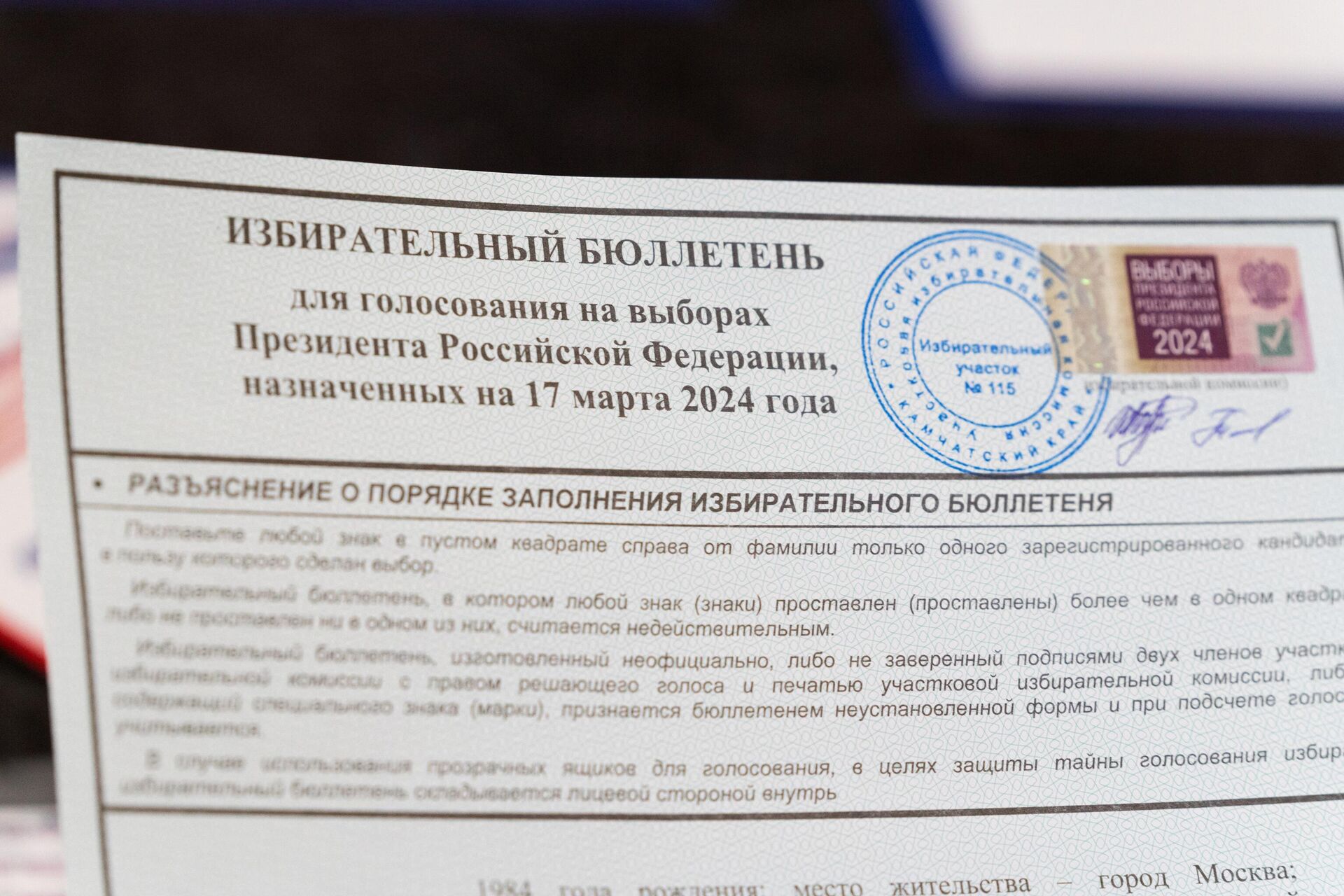
A ballot during early voting in the 2024 presidential elections of the Russian Federation.
© Sputnik . Alexandr Piragis
/ How Does Russia Elect Its President?
The President of Russia is elected for a six-year term by the citizens of Russia through universal, equal, and direct suffrage by secret ballot. The presidential election is conducted within a single federal electoral district encompassing the entire Russian territory.
March 17, 2024, was officially designated by the Russian Federation Council, the upper house of parliament, as the day of the presidential election. Following this decision, the Russian Central Election Commission (CEC) announced that the voting would occur over three days, from March 15 to March 17.
"Three-day voting is already becoming a tradition in our electoral system… It was first used during the [Covid-19] pandemic, but over time the majority of voters came to like the format because of its other advantages," CEC chairwoman Ella Pamfilova said.
What’s New in the 2024 Elections?
An E-voting, remote electronic voting system, is being used for the first time to elect Russia's president, according to a decision made by the Central Election Commission. The innovation spans across 28 regions in Russia, offering online e-voting options.
Residents in Moscow and the surrounding Moscow Region, as well as in regions including Altai, Arkhangelsk, Belgorod, Chelyabinsk, Chuvash, Kaliningrad, Kaluga, Kamchatka, Karelia, Kursk, Lipetsk, Murmansk, Nenets, Nizhny Novgorod, Novgorod, Novosibirsk, Perm, Pskov, Rostov, Sverdlovsk, Tomsk, Vladimir, Vologda, Voronezh and Yaroslavl regions, will have access to this electronic voting platform.
Additionally, Crimea is included in the regions where online e-voting will be available.
To participate in remote electronic voting, eligible voters had to submit an application between January 29 and March 11, within a 45-day period leading up to the Election Days.
Electronic Ballot Processing System (EBPC)
The EBPC is an advanced electronic system designed to streamline the processing of paper ballots. Utilizing specialized scanners, it reads and tabulates marked ballots with precision. This hardware and software complex automates vote counting and executes standard procedures outlined in electoral laws. Additionally, the system can generate the election commission's protocol, which is then printed and sent to the higher election commission.
Mobile Voter
The Mobile Voter mechanism offers Russian citizens the flexibility to cast their votes at a polling station other than their designated location based on their home address. Moreover, citizens can opt for online voting, provided it's available in their region. In both scenarios, individuals must submit an official application prior to the election.
Election State Automated System
The Election State Automated System is a comprehensive information software designed to ensure accurate and efficient ballot counting. From planning and voter registration to candidate data management and vote tallying, this system streamlines the electoral process at every stage. It facilitates voting operations, including summarizing results and conducting final statistical analysis.
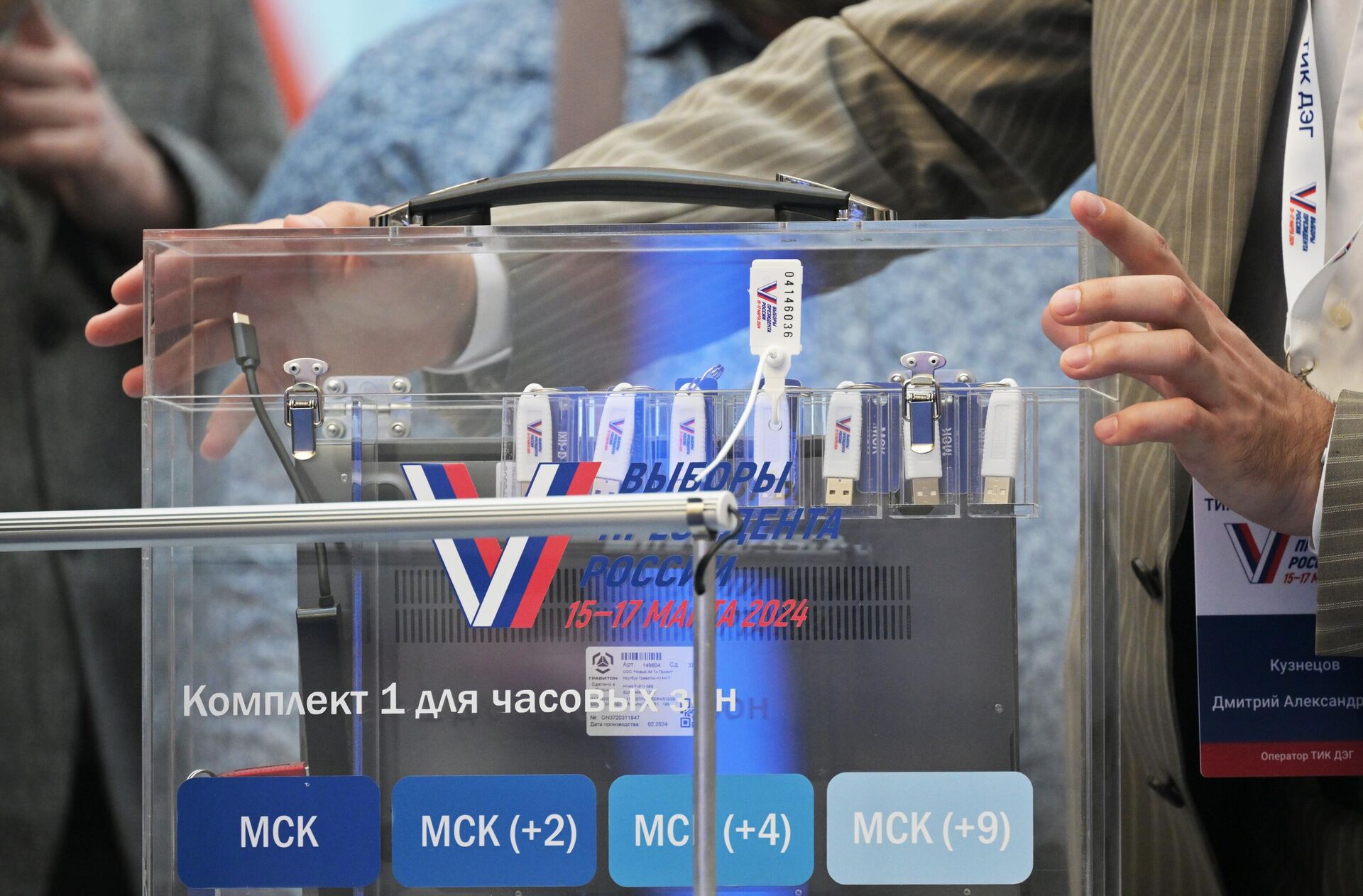
The ceremony of sharing keys for decrypting remote electronic voting at the Central Election Commission of the Russian Federation before the start of the 2024 presidential elections in the Russian Federation.
© Sputnik . Evgeny Biyatov
/ Who Qualifies to Run For President in Russia?
To be eligible for candidacy, individuals must be citizens of Russia, aged 35 or older, and have maintained permanent residency in the country for at least 10 years.
However, certain categories of Russian citizens are ineligible to run for office, including:
Those sentenced to prison for a serious crime and/or felony and who have a conviction that has not been expunged or spent by Election Day;
Those whose conviction for a serious crime has been expunged or spent less than 10 years before Election Day;
Those whose conviction for a felony has been expunged or spent less than 15 years before Election Day;
Those sentenced for committing extremist crimes under the Criminal Code of the Russian Federation and who have on Election Day a conviction that has not been expunged or spent;
Those who have been administratively punished for promoting extremism or for producing and distributing extremist materials, if the voting is conducted before the end of the period of this person’s administrative punishment;
Those who have been sentenced by a court for violations of the Federal Law On Combating Extremist Activities, if said violations or activities took place within six years of Election Day.
Who Can Vote in Russia's Presidential Elections?
According to the Central Election Commission, there are 112.3 million eligible voters inside Russia, and around 1.9 million eligible voters who reside abroad.
Citizens of Russia, who have reached the age of 18 by Election Day, have the right to vote for the president of Russia.
Citizens of Russia, who reside or are traveling abroad during the election campaign and on Election Day, have equal rights with all the other citizens of the Russian Federation to elect the president.
Those, who have been declared incompetent by a court or are serving a prison term by a court verdict, are not allowed to take part in electoral activities.
In the 2024 presidential election, a new Russian citizen, Kevin Vladimirovich Johnson – the American-born boxer who was granted Russian citizenship by President Vladimir Putin's decree in January – cast his ballot for the first time.
Who Are Candidates in Russia's 2024 Presidential Election?
There are four candidates vying for the top office:
Self-nominated candidate and incumbent President of Russia Vladimir Putin;
Communist Party of the Russian Federation (CPRF) nominee Nikolai Kharitonov;
Liberal Democratic Party of Russia (LDPR) nominee Leonid Slutsky;
New People party nominee Vladislav Davankov.
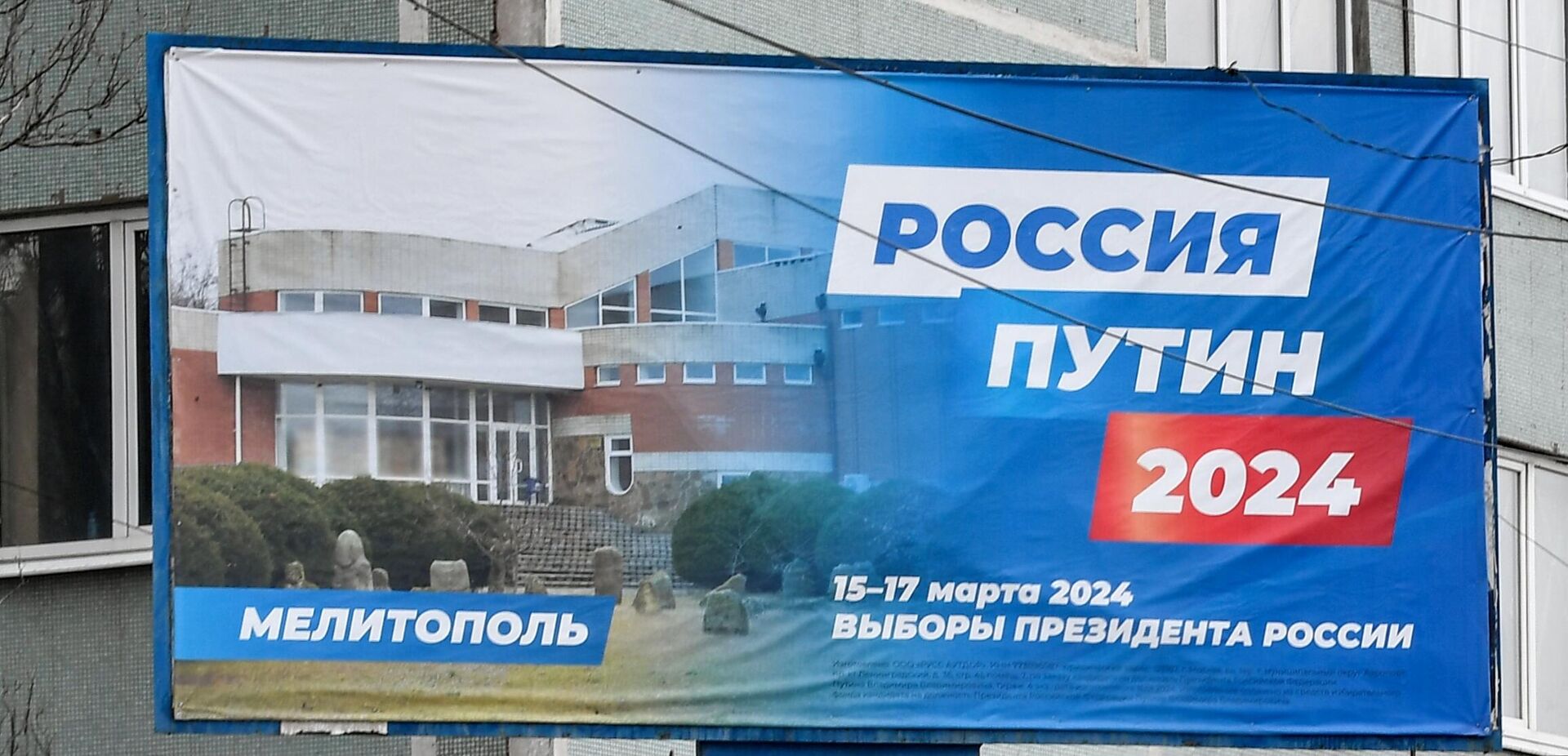
A billboard featuring the election campaign of Russian presidential candidate Vladimir Putin can be seen on one of the streets in Melitopol, in the Zaporozhie region
© Sputnik . Konstantin Mihalchevskiy
/ All candidates running in the presidential race have a higher education, with Putin specializing in law, Davankov in history, Slutsky in management, and Kharitonov in agrarian studies. In terms of academic degrees, Putin and Kharitonov hold doctorates in economics, Kharitonov also holds one in sociology, while Slutsky is a doctor of economics.
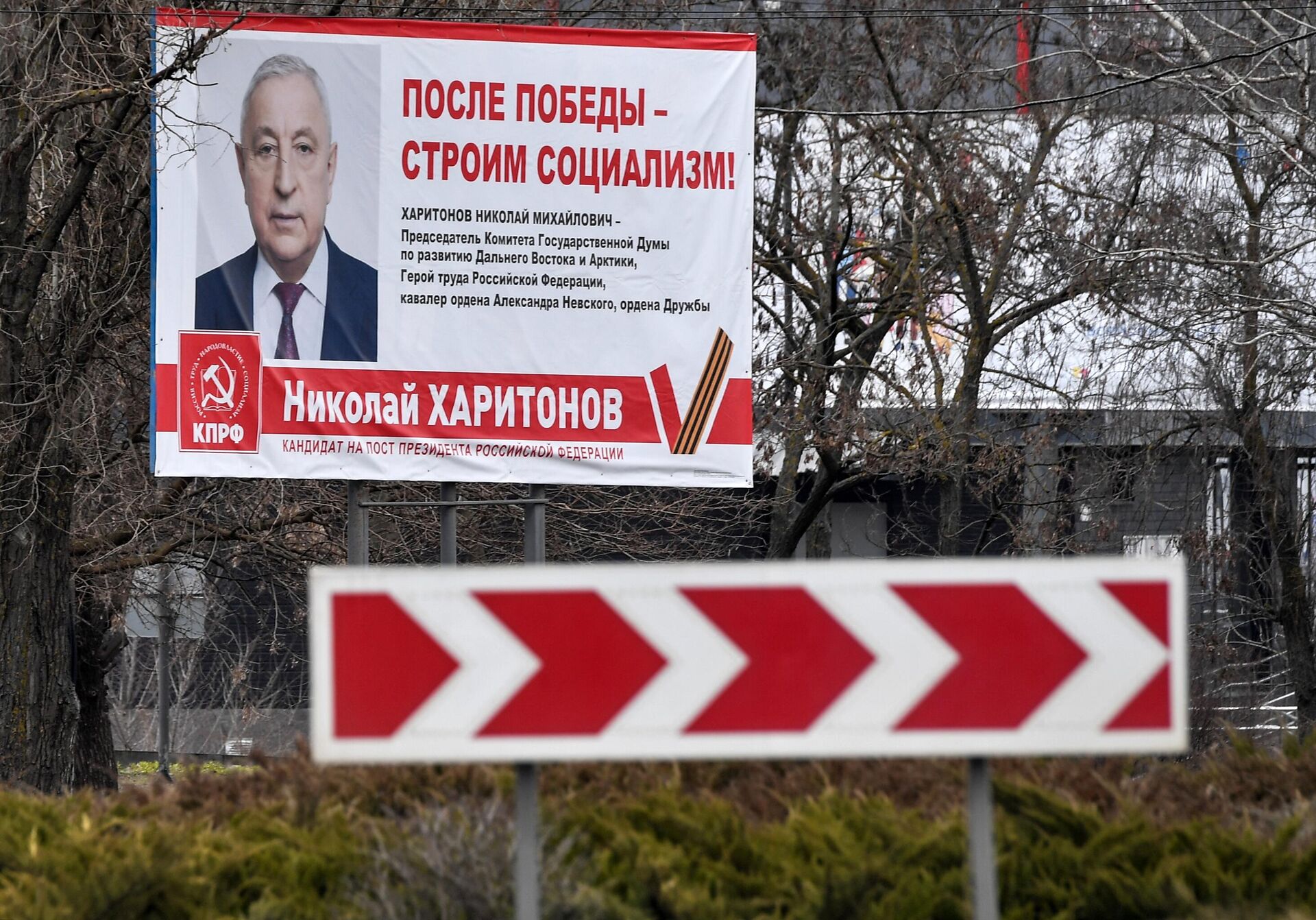
An election campaign billboard of Russian Communist Party presidential candidate Nikolai Kharitonov on one of the streets of Melitopol, Zaporozhye.
© Sputnik . Konstantin Mihalchevskiy
/ Age-wise, Nikolai Kharitonov is the oldest candidate at 75, while Vladislav Davankov, who will turn 40 on March 17, 2024, is the youngest presidential contender.
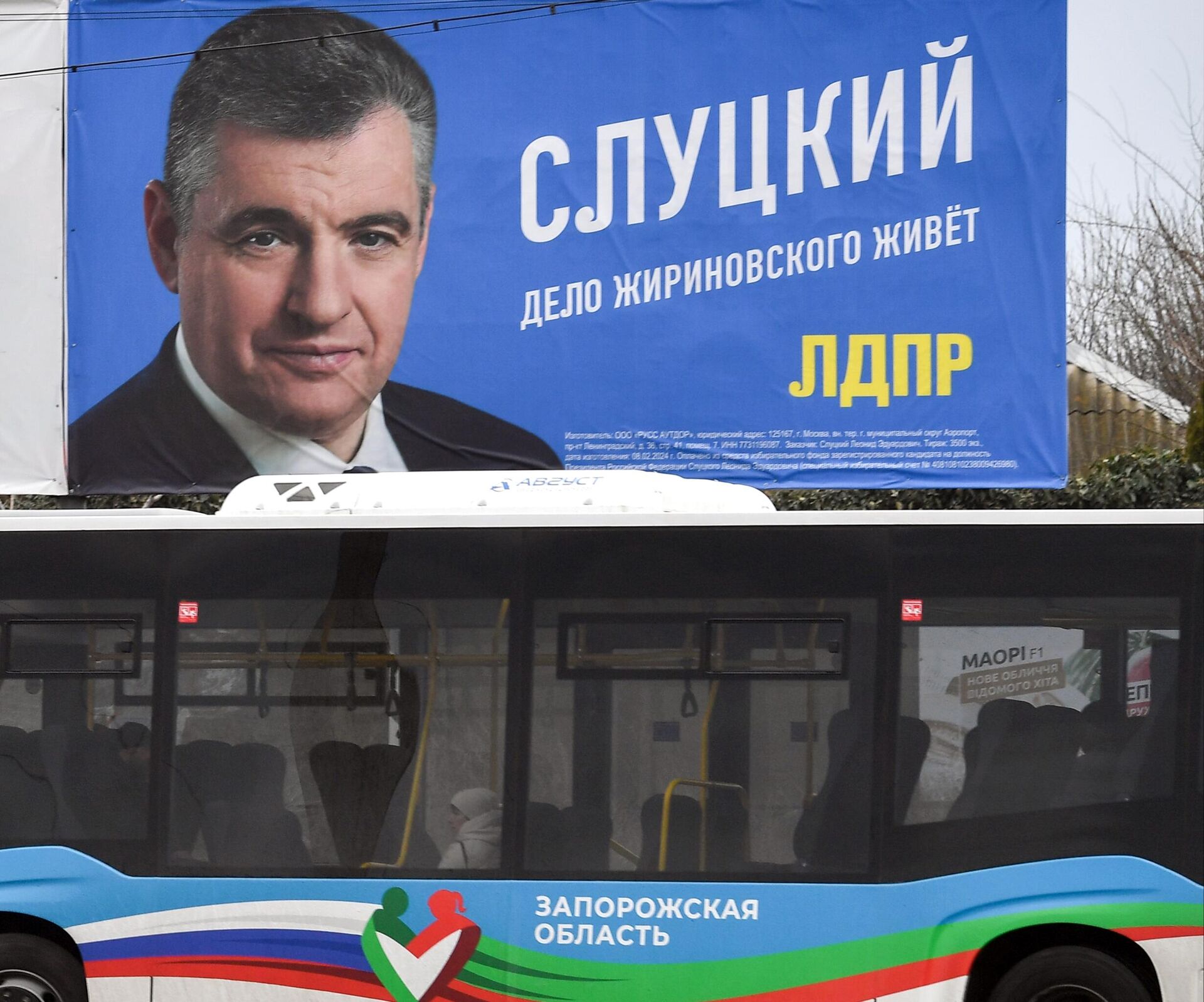
An election campaign billboard for the 2024 Russian presidential election promoting candidate Leonid Slutsky.
© Sputnik . Konstantin Mihalchevskiy
/ While Leonid Slutsky and Vladislav Davankov are newcomers to the presidential race, the other two other contenders have prior experience in running for the nation's top office. Vladimir Putin has participated in four presidential elections, while Nikolay Kharitonov threw his hat into the ring in 2004.
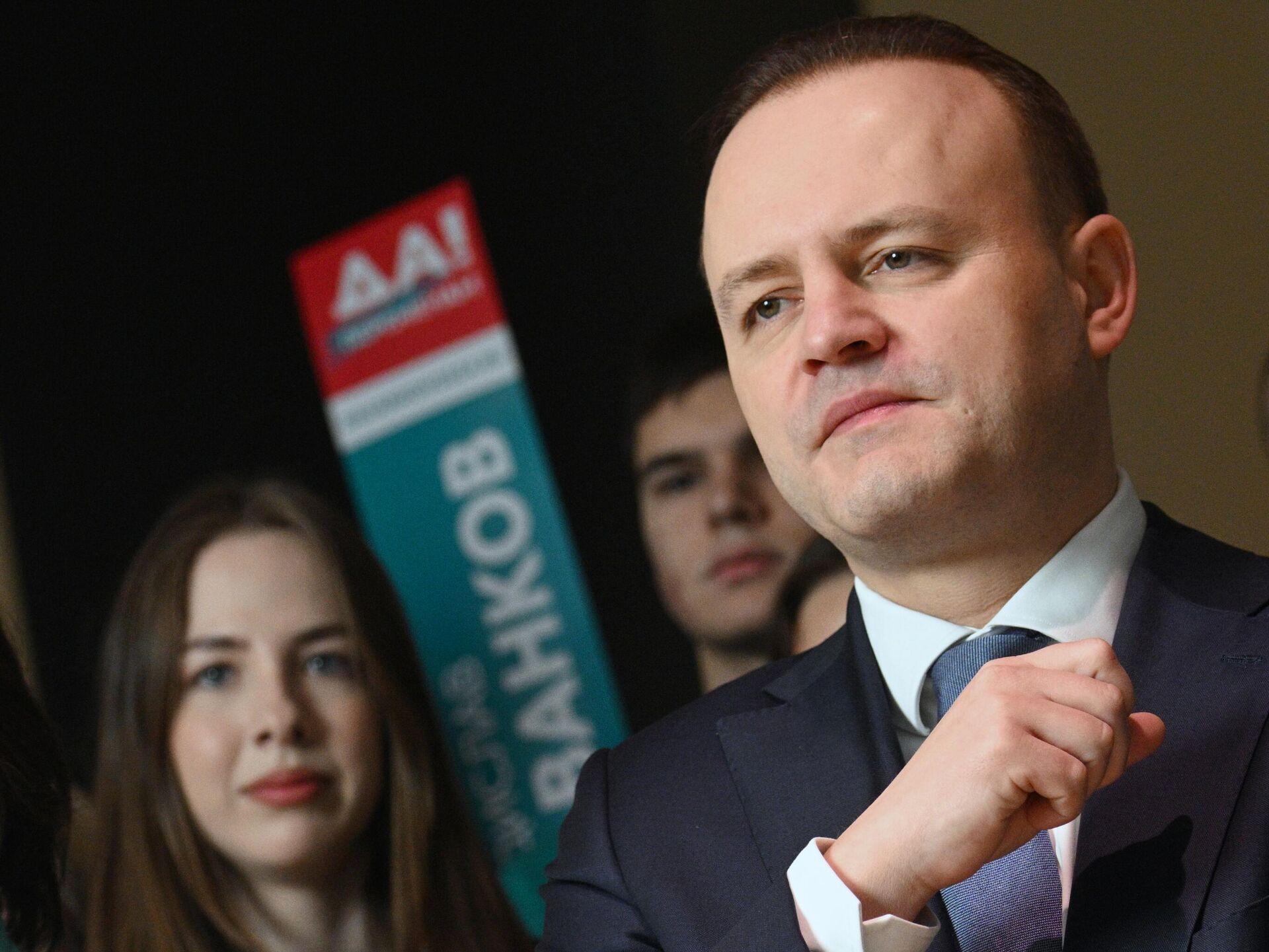
2024 Russian presidential election candidate, State Duma Deputy Speaker Vladislav Davankov.
© Sputnik . Kirill Zykov
/ Who Will Observe the Voting Process?
Election observers are citizens who monitor compliance of election procedures with the law, supervise the process and record possible violations.
Election observers have the right to:
be present at the polling stations on the day of voting;
supervise the counting process and how ballot papers are issued;
get acquainted with the protocol of the election commission on the voting results and receive a certified copy of it;
address proposals and comments on the voting process to the voting commission;
appeal decisions and actions (or lack thereof) of the election commission to the higher election commission or a court.
Delegations of international observers from 36 countries have arrived in Russia, including from 30 national parliaments, as well as from 5 international organizations. Among them are the CIS Interparliamentary Assembly of Member Nations, the Parliamentary Assembly of the Collective Security Treaty Organization (PA CSTO), the ASEAN Inter-Parliamentary Assembly, the Organization of Islamic Cooperation, and the Central American Parliament (PARLACEN).
In total, more than 200 parliamentary observers have been accredited, in addition to dozens of electoral experts.
Some of the African observers shared their experiences in observing the presidential elections on Friday.
The President of the National Assembly of Burundi, Honorable Gelase Daniel Ndabirabe, noted the benefits of introducing electronic voting in elections.
"I was told that to date there have been no complaints about the security of the electronic trial. Which is another great success, because that's what's so frightening. I say: 'congratulations.' Because there can't be any hacking. That's a very good thing," he told Sputnik Africa.
A Kenyan observer, who's watching the voting process in Russia's city of Perm told Sputnik that "the election process has started well" and "the election officials are well set."

